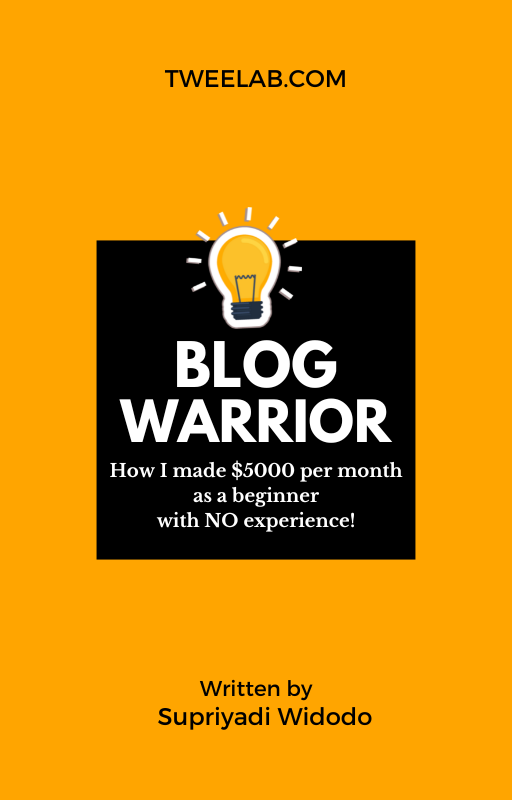Are you thinking of starting a blog but don’t know where to start? Choosing the right blog niche is the most important decision you’ll make for your blogging journey. Your niche determines what topics you will cover, who your target audience is, and ultimately how successful your blog will be.
In this article, we’ll guide you through the process of choosing a niche that aligns with your interests, expertise, and goals.
First things first, why is it so crucial to choose a specific niche for your blog? Simply put, having a clear focus helps attract readers who are interested in your content and convert them into loyal followers. It also makes it easier for you to create valuable content consistently and position yourself as an authority in your subject area.
But picking a blog niche can feel overwhelming – there are countless options out there! Fear not, by following our tips on brainstorming ideas, evaluating competition, and gauging profitability; you’ll be able to narrow down the field and find the perfect fit for your new blog.
Identifying Your Interests And Passions

Are you struggling to find a blog niche? One of the best ways to start is by identifying your interests and passions. This will not only make blogging more enjoyable, but it will also keep you motivated and inspired throughout the process.
Start by finding inspiration in your everyday life. What are some topics that catch your attention? Maybe it’s cooking, fashion, or fitness. Don’t limit yourself – explore hobbies that excite you even if they seem unrelated to each other.
You may be surprised at how easily these different interests can come together into a cohesive blog.
Once you have identified what sparks your interest, brainstorm potential niches within those topics. For example, if cooking is something you enjoy, consider narrowing down to a specific cuisine or dietary preference.
By honing in on a particular aspect of an interest, you can establish yourself as an expert in that area and attract like-minded readers to your blog.
Conducting Market Research

When it comes to choosing a blog niche, conducting market research is crucial. Without proper research, you might end up wasting time and effort on a topic that isn’t sustainable or profitable in the long run.
One effective method of researching your blog niche is by using online tools. Various websites offer keyword analysis and trend analysis that can give you an idea of what topics are currently popular among readers. This information can help you narrow down potential niches and decide which one would be most appealing to your target audience.
Another way to gather data about your potential readers is through surveying them directly. You can use social media platforms like Twitter and Facebook to ask questions and get feedback from followers who may already have an interest in your content. By understanding their preferences, needs, and interests, you’ll be able to create content that resonates with them more effectively.
By utilizing both online tools and direct communication with your audience, you’ll be able to conduct thorough market research before deciding on a blog niche. Remember: taking the time to do this initial work will pay off in the long run as you build a loyal following around content that speaks specifically to their wants and needs.
Evaluating The Competition

Now that you have conducted market research, it’s time to narrow down your options and choose a niche for your blog.
One of the first things you should consider is your personal interests and passions. Blogging about something you’re genuinely interested in will help keep you motivated and engaged with your content.
However, it’s important to also consider the potential audience size and profitability of a blog niche. Research techniques such as keyword analysis can help you determine if there is enough search volume for topics related to your chosen blog niche. You may also want to look into trends and popular topics within your industry to ensure that there is demand for your content.
Once you’ve narrowed down a few potential niches, it’s crucial to do competitive analysis. This involves researching other blogs or websites within your chosen niche to see what they are doing well and where there may be gaps in the market.
By evaluating the competition, you can identify areas where you can differentiate yourself from others while still providing valuable content to readers.
Remember, choosing a niche is an important decision that will impact the success of your blog. Take the time to thoroughly research and evaluate different options before making a final decision.
With careful consideration and strategic planning, you can create a successful blog that attracts loyal followers and establishes yourself as an expert in your chosen field.
Analyzing Blog Niche Profitability

When it comes to choosing a blog niche, profitability is an important factor to consider. After all, you want your efforts to pay off in the long run! Analyzing the potential profitability of a niche can help you make an informed decision about whether or not it’s worth pursuing.
One key element of analyzing profitability is conducting keyword research. This involves identifying popular search terms related to your blog niche and evaluating their competition levels. By finding high-volume keywords with low competition, you’ll have a better chance of driving traffic to your site and ranking well on search engines.
Another aspect to consider is your target audience. Are there specific demographics that are particularly interested in your chosen niche? And more importantly, are they willing to spend money on products or services related to that area? Understanding who your target audience is and what they’re willing to invest in can be crucial for monetizing your blog down the line.
To sum up, when selecting a niche for your blog, don’t forget to analyze its potential profitability through methods like keyword research and understanding your target audience’s spending habits.
Here are some additional tips:
- Look at current market trends and upcoming developments in the field.
- Consider how easily you can create content around this topic consistently.
- Evaluate competitors’ earning potentials within this niche.
- Take into account any costs associated with creating and maintaining a successful blog within this particular area.
By keeping these factors in mind, you’ll be able to choose a profitable niche that aligns with both your interests and financial goals as a blogger.
Brainstorming Niche Ideas

As a blogger, finding the right blog niche is crucial to your success. Your niche should be something that you are passionate about and knowledgeable in. Niche discovery can be a creative process that involves brainstorming techniques and idea generation.
One way to discover your niche is by thinking about your hobbies or interests. For example, if you love gardening, you could start a blog about gardening tips or plant care. Another approach is to think about problems or challenges you have faced in the past and how you overcame them. This can help you identify niches where you can provide solutions for others facing similar issues.
Brainstorming with friends or family members can also be helpful in generating ideas for your niche. In addition, conducting research on popular blogs within different niches can give you an idea of what topics are currently trending. To help get started with your own brainstorming process, consider using the table below:
| Category | Interests | Problems |
|---|---|---|
| Health & Fitness | Yoga, Running, Nutrition | Stress management, Weight-loss |
| Technology | Gaming, Software development | Cybersecurity threats |
| Lifestyle | Travel, Fashion, Food | Budget-friendly travel tips |
Remember, choosing a niche will take time and effort but don’t rush it! Take the time to explore different areas of interest until you find one that resonates with you personally. Once identified, it’s important to create quality content consistently – this will keep readers coming back for more!
Narrowing Down Your Options

Now that you have a list of potential niches, it’s time to start narrowing down your options. This process can be overwhelming, but with the right brainstorming techniques and focus, you’ll find the perfect fit for your blog.
Firstly, consider your passions and interests. What topics do you naturally gravitate towards? Which ones make you excited to learn more about and share with others? Eliminate any niches that don’t align with your personal interests as they will likely become tedious in the long run.
Next, think about the audience you want to attract. Who are they? What problems or questions do they have? Make sure the niche you choose is relevant and valuable to them.
To help evoke emotion in your audience, create a nested bullet point list outlining specific pain points or desires your target readers may have within your chosen niche. Then provide sub-lists offering solutions or tips on how to address these issues.
Finally, don’t rush this decision. Take some time to reflect on each option and weigh the pros and cons before making a final decision. Remember, choosing the right niche is crucial for building an engaged community around your blog.
By following these steps and eliminating options along the way, you’ll end up with a focused niche that aligns with both your passion and target audience – setting yourself up for success in the blogging world!
Making The Final Decision

Did you know that choosing a niche for your blog is one of the most crucial decisions you’ll make as a blogger? It’s true! And it’s also why seeking advice from experts in your field can be incredibly helpful. These individuals have likely gone through the same process and may have insights or tips you hadn’t considered.
Despite this, doubt can still creep in when making such an important decision. You might worry about limiting yourself too much or not being able to create enough content within your chosen niche. But remember: having a specific focus actually makes it easier to come up with new ideas and target a dedicated audience.
Plus, if you find yourself wanting to branch out later on, nothing is stopping you from creating another blog! So how do you ultimately make the final decision?
Consider factors like your own interests and expertise, trends in the industry, and potential gaps in the market. Don’t let fear hold you back – take some time to brainstorm and research until you feel confident in your choice. Remember, there’s no perfect niche – but by putting thought into it now, you’re setting yourself up for success down the road!
Key Takeaways

- Choosing the right niche is crucial for the success of your blog as it determines the topics you cover, your target audience, and your blog’s overall success.
- Identify your interests and passions to find a niche that aligns with them. Explore hobbies and brainstorm potential niches within those topics.
- Conduct market research using online tools and direct communication with your audience to gauge the popularity and profitability of potential niches.
- Evaluate the competition within your chosen niche to identify areas where you can differentiate yourself and provide valuable content to readers.
- Analyze the potential profitability of a niche through keyword research and understanding your target audience’s spending habits.
- Consider current market trends, your ability to consistently create content, competitors’ earning potentials, and associated costs when selecting a niche.
- Brainstorm niche ideas by considering your interests, problems you’ve overcome, and popular topics in different niches.
- Narrow down your options by considering your passions, target audience, and addressing their pain points or desires.
- Seek advice from experts and conduct thorough research before making the final decision on your niche.
- You can change your niche later on if it’s not working, but it’s important to plan and communicate the transition effectively to maintain your audience.
- Find a balance between current trends and evergreen topics when choosing a niche to ensure long-term viability and audience appeal.
- Personal experience and expertise in a niche can be advantageous but not always necessary. Thorough research and collaboration with knowledgeable individuals can compensate for the lack of personal experience.
- While it’s possible to have multiple niches within one blog, it can dilute your brand identity and confuse your audience. Consider the pros and cons before deciding on a single or multi-niche approach.
- Choose a niche that you genuinely enjoy and are passionate about, as this will make it easier to create quality content consistently and build an engaged audience.
- Don’t be discouraged if your first niche choice doesn’t work out. Many bloggers change their niche before finding success. Be open to pivoting and trying something new.
Frequently Asked Questions
How Do I Know If My Niche Is Too Narrow Or Too Broad?
When it comes to finding the right niche for your blog, you want to strike a balance between being too narrow and too broad.
A niche that is too narrow may limit your potential audience, while a niche that is too broad can make it difficult to stand out from the competition.
It’s important to consider whether there is enough interest in your chosen topic and if there are opportunities for expansion or diversification within that niche.
As an expert blogger, my advice would be to start with a specific focus but remain open to exploring new ideas and subtopics as you grow your blog.
Keep in mind that finding the right fit takes time and experimentation – don’t be afraid to pivot if necessary!
Can I Change My Niche Later On If I Realize It’s Not Working?
As a blogging expert, I highly recommend that you not be afraid to pivot your blog’s niche if you realize it’s not working.
There are tips and strategies for successfully doing so while maintaining your audience.
First, do some research on potential new niches and make sure they align with your passions and expertise.
Then, create a plan for rebranding your blog to reflect the new direction.
Be transparent with your readers about the change and continue delivering high-quality content that resonates with them.
With these tactics in place, you can confidently shift gears and take your blog to the next level.
Should I Choose A Niche Based On Current Trends Or Something More Evergreen?
Finding the perfect niche for your blog is an essential step towards creating a successful platform that resonates with your audience.
However, it’s crucial to consider the long-term viability versus short term popularity of your chosen topic.
While current trends may seem tempting, you need to find the balance between niche specificity and audience appeal when choosing a theme for your blog.
Opting for something more evergreen will enable you to create content that stays relevant over time and helps establish yourself as an authority in your field.
So, before jumping on the trend bandwagon, think about whether it aligns with what you’re passionate about and if you can consistently produce valuable content around it.
How Important Is It To Have Personal Experience Or Expertise In The Niche I Choose?
When it comes to choosing a niche for your blog, personal experience and expertise can definitely be an advantage. However, it’s not always necessary.
What is important is conducting thorough research on the topic you’re interested in and collaborating with others who are knowledgeable about the subject matter. By doing so, you can gain valuable insights into what your audience wants and needs from your content.
Additionally, working with experts in the field can help you produce more accurate and high-quality content that truly resonates with your readership. So whether you have direct experience in your chosen niche or not, don’t underestimate the importance of research and collaboration when deciding what to write about on your blog.
Can I Have Multiple Niches Within One Blog Or Should I Stick To Just One?
Blogging is like a vast ocean, with each niche acting as its own unique island.
While it may be tempting to explore multiple niches within one blog, mixing niches can be compared to trying to sail two ships in opposite directions at once – the journey becomes unfocused and confusing.
However, there are pros and cons of multi-niche blogging. On the positive side, you have more opportunities for content creation and potential audiences. But on the negative side, your brand identity could become diluted or disjointed if not executed properly.
Ultimately, it’s up to you to decide whether focusing on one niche or exploring multiple will best serve your goals and audience.
As a blogging expert, my advice would be to carefully consider all aspects before making any definitive decisions.
Final Thoughts
When it comes to choosing a niche for your blog, there are several factors to consider. You want to ensure that your niche is not too narrow or too broad and that you have personal experience or expertise in the subject matter. Additionally, you should choose a niche based on its potential longevity rather than just current trends.
If you’re feeling overwhelmed by all of these considerations, don’t worry! According to recent statistics, over 60% of bloggers say they changed their niche at least once before finding success. This means that it’s okay if your first attempt doesn’t work out – you can always pivot and try something new.
Ultimately, the most important thing is to choose a niche that you genuinely enjoy writing about and are passionate about sharing with others. With time and effort, you can build an engaged audience who shares your interests and values.
So go ahead and take the plunge – your blogging journey awaits!


